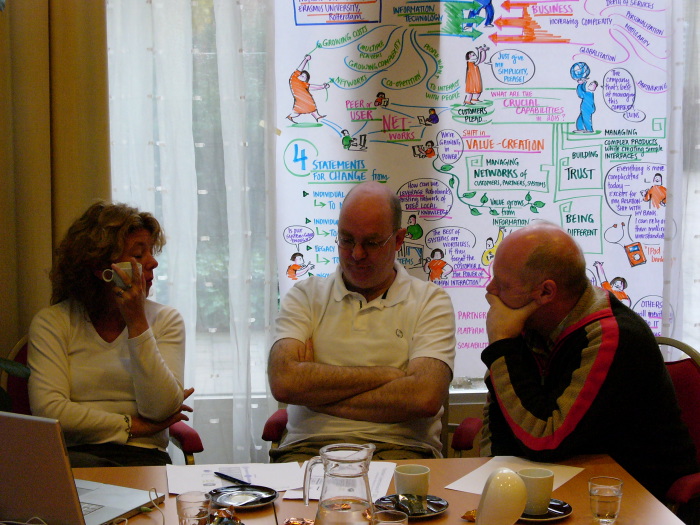Future of ICT Banking 2017+ (Rabobank)
Getting the right perspective to build a robust strategy
A fresh start and a new management team presented Rabobanks ‘Systeemrealisatie’ – the ICT development department – a good moment for getting the right perspective for setting goals, justifying investments, defining a flexible strategy. The DTN led a one-year scenario process on the future of ICT in financial services. More than 30 key Uncertainties and Driving Forces were identified and examined.
The scenario set anticipated a major global financial crisis: Money is scarce. The investment climate is highly risk averse. Financial institutions need to rebuild customer trust in the system.
From the Driving Forces and Uncertainties
Outsourcing: Outsourcing all or large portions of the ICT department is on the rise. It is part of an emerging trend to move from traditional sourcing to partnerships that create value for all parties.
Bank consolidation: Cross-border consolidations are expected to bring efficient, low cost banking. But there are mitigating considerations: brand loyalty and advantages of proprietary knowledge enjoyed by local banks.
Non-traditional providers: The financial market has seen new entrants in the form of software companies, online portals, electronic marketplaces etc.. In the U.K. alone, more than 11 million people use non-traditional providers; for example, the local supermarket, and the post office.
Open Banking: Web 2.0 has introduced new tools for collaboration on local and global scale. In this environment, banks could act somewhat like eBay, an intermediary between buyer and seller. In this case, banks can match millions of people needing small loans with those who have cash to lend.


